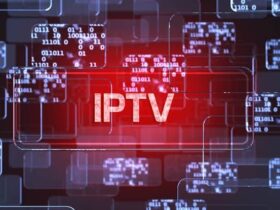
In the realm of telecommunications and media consumption, the convergence of IPTV (Internet Protocol Television) and 5G networks represents a significant leap forward in delivering high-quality, interactive content to users globally. As 5G continues to roll out across various regions, its impact on IPTV service delivery is becoming increasingly profound, ushering in new possibilities and enhancements for both providers and consumers alike.
VIsit this website for IPTV services:
Before delving into the impact, it’s essential to understand the fundamentals of both IPTV and 5G:
IPTV:
IPTV delivers television content over IP networks, allowing users to stream live TV, on-demand videos, and interactive content via broadband internet connections. It offers advantages such as enhanced interactivity, personalized content delivery, and integration with other internet services.
5G Networks:
5G is the fifth generation of cellular networks, designed to provide faster speeds, lower latency, and increased capacity compared to previous generations (3G and 4G LTE). It promises to revolutionize connectivity across various industries, including telecommunications, IoT (Internet of Things), and media streaming.
Impact of 5G on IPTV Service Delivery

1. Enhanced Streaming Quality:
Ultra-High Definition (UHD) and 4K Content: 5G’s high bandwidth and low latency capabilities enable seamless streaming of UHD and 4K content on IPTV platforms. This enhances the viewing experience with sharper images and more vibrant colors, catering to the growing demand for high-quality video content.
Reduced Buffering and Lag: With reduced latency (potentially less than 1 millisecond), 5G minimizes buffering and lag during video streaming, ensuring a smoother and uninterrupted viewing experience, especially for live events and sports broadcasts.
2. Improved Accessibility and Mobility:
Anywhere, Anytime Access: 5G enables IPTV services to be accessed seamlessly on mobile devices, providing users with greater flexibility to watch their favorite shows or live events on the go.
Multi-device Connectivity: Users can connect multiple devices simultaneously to 5G networks, allowing IPTV providers to offer multi-screen viewing experiences without compromising on quality or performance.
3. IoT Integration and Smart Home Applications:
Smart Home Integration: 5G facilitates integration with IoT devices within smart homes, enabling IPTV services to interact with other connected devices such as smart TVs, voice assistants, and home automation systems.
Enhanced User Control: Users can leverage 5G’s low latency to control their IPTV services in real-time, such as adjusting settings, interacting with content, or participating in live polls and interactive features seamlessly.
4.Opportunities for Innovation and New Services:
Virtual Reality (VR) and Augmented Reality (AR): 5G’s high-speed, low-latency characteristics pave the way for immersive VR and AR experiences within IPTV content, offering viewers interactive and immersive storytelling opportunities.
Cloud Gaming and Enhanced Interactivity: IPTV providers can leverage 5G’s capabilities to offer cloud gaming services and real-time interactive content, enhancing engagement and expanding revenue streams beyond traditional TV broadcasting.

While the potential benefits of integrating 5G with IPTV are vast, several challenges and considerations need addressing:
Infrastructure Investment: Deploying 5G infrastructure requires significant investments in network upgrades and expansions, which may pose financial challenges for IPTV providers and telecommunications companies.
Regulatory and Spectrum Issues: Regulatory frameworks and spectrum allocation policies need to be adapted to accommodate the unique requirements of 5G-enabled IPTV services, ensuring fair competition and efficient spectrum utilization.
Privacy and Security Concerns: With increased connectivity and data exchange, ensuring robust cybersecurity measures and protecting user privacy become paramount for both IPTV providers and 5G network operators.
Looking ahead, the synergy between 5G networks and IPTV holds tremendous promise for transforming how media content is delivered, consumed, and interacted with globally. As 5G continues to expand its footprint and capabilities, IPTV providers are poised to innovate and deliver richer, more personalized content experiences that cater to the evolving preferences and expectations of modern audiences.

For the best IPTV experience and best prices click on the link given below:
In conclusion, the integration of 5G networks with IPTV represents a paradigm shift in media and telecommunications, offering unparalleled opportunities for enhanced content delivery, interactivity, and user engagement. While challenges remain, the potential benefits for consumers, content creators, and service providers are vast, shaping the future of entertainment and connectivity in the digital age. As technologies evolve and synergies strengthen, the landscape of IPTV powered by 5G is set to redefine the boundaries of media consumption and connectivity worldwide.










Leave a Reply